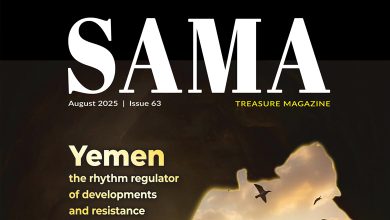
Dr. Seyed Mehdi Hosseini, PhD in Political Science,
is a talented and insightful translator of the book “The Age of Artificial Intelligence and the Future of Humanity.”
He has beautifully and intelligently rendered the term “network platform” as “the network infrastructure.”
“Far from the noise — even hidden from sight —
we are weaving non-human artificial intelligence
into the very fabric of our lives.
This transformation is advancing rapidly,
driven by a new element we call the ‘network infrastructure.’”
Through this conceptual framing, one can contemplate notions such as platform, base, infrastructure —
and more broadly, the techno-digital realm —
as the underlying structure shaping thought, motivation, and aesthetic perception
within the emerging generation.
As the poet said:
“Silk does not become finer,
even if you call it satin, brocade, or velvet.”
With this premise in mind,
we seek to shed light on the subtle yet profound influence of concepts such as
cybernetics, consciousness, legitimacy, artificial intelligence, political science, and the university
on the behavioral and cognitive formation of the new generation.
The doctrine of personal construct psychology, as interpreted by George Kelly, is founded on the premise that:
“The human being whose progress in controlling and predicting the events of the surrounding world shines gloriously through the ages,
is the very same human we see around us in daily life.
Man, by his very nature, flees from ignorance and darkness, and values knowledge and understanding —
which are among the essential dimensions of spirituality.”
It is evident that throughout the world, the university remains the primary center of knowledge and enlightenment.
While expressing the highest respect for the esteemed academic community — the wise administrators, respected professors, diligent students, honorable staff, and all others —
it must nevertheless be acknowledged that:
“Iran’s university system lacks genuine global connectivity;
the Faculty of Political Science on one hand, and the apparatus of government and administration on the other, maintain only extremely limited interaction.”
This isolation has been one of the key reasons behind the assault launched by the “Church of Google” and the domain of cyber knowledge
against the infrastructure of ‘jurisprudential political Islam’,
that is, the very capacity for reflection on the deepest dimensions of spirituality.
Such an assault exposes, ever more clearly, the lack of sufficient contemplation
on fundamental issues such as “structure and agency,” and the nature of their interrelation.
As is evident today,
the new generation’s struggle with digital technology has turned that modern “monastery” into a self-proclaimed oracle that offers convenient answers to every question —
even boasting that it alone brings salvation to this generation.
Yet few dare to say:
“Salvation is not the monopoly of this church.”
Although digital network constructs have had a profound impact on the everyday experiences of the younger generation,
a significant portion of the new elements through which this network infrastructure shapes such experiences lacks authenticity and verification.
The danger of this absence of validation — amid the information explosion and the world’s imminent leap into a cybernetic civilization —
creates an environment in which specialized expertise in managing the thoughts and motivations of the new generation becomes more essential than daily bread itself.
Accordingly,
Cybernetics has developed its own unique language.
Within the vast toolkit of this medium for exchanging ideas, one can find content for every taste —
from dark humor and satire to political economy, theology, biology, social psychology, and even the minutiae of everyday life.
Some of its newly coined terms and expressions include:
“electronic balcony,” “electronic cottage,” “cyberpunk,” “cyborg” (cybernetic organism), and others.
For example:
Cyborg studies examine the impact of technology — particularly virtual environments — on the human body.
The term cybernetics itself is derived from the Greek word Steersman, meaning “the one who controls the ship.”
It refers to the study of communication and control among human beings,
and serves as the foundation of interdisciplinary knowledge or the science of organized systems.
The core principle of cybernetic theory is that control is made possible through communication and information.
The main headquarters of this control is located in Silicon Valley, USA.
Although credibility is a constant companion of competence and expertise,
the consequences of undocumented teachings are extremely risky.
From a theoretical and historical perspective, credibility is considered a lasting power.
A power that does not collapse even in defeat — as long as the defeat is not due to error or betrayal — and remains eternal in history.
One of the documents to which the network infrastructure has dedicated attention is the very important question of Abbas Mirza, Crown Prince of Qajar, to Monsieur Joubert, Napoleon’s envoy.
Over two hundred years ago, during a period of:
“Iran’s successive defeats against Russia, which for the first time confronted the Iranians with reality.”
On one day, in the midst of the war in Qarah-Chaman, Abbas Mirza asked Joubert in a historic meeting:
“Speak, foreigner! Tell me what I should do to awaken the Iranians? I do not know the power that has placed you over us, nor what caused our weakness and your advancement. Has not God, whose mercy encompasses all particles of the universe equally, allowed you superiority over us? I do not think so.”
Today, this question remains unanswered from a sociological perspective,
despite reflecting the genius and insight of Abbas Mirza,
and it is the responsibility of the Political Science University to address it.
This expectation is entirely justified from a university that should be:
“A center for the liveliest and most outstanding scientific, technical, literary, and intellectual research.”
It should at least guide students — especially political science students — to the correct direction of history.
Yet it seems truly that one of the greatest problems of Iranian society over the last two centuries is the difficulty in distinguishing truth from falsehood.
This problem, besides undermining the credibility of documentation, ensures that any position or responsibility — or as Abd al-Hamid Abu al-Hamad described in his books on political principles — when misused through trust or cunning,
like Yusuf “who came to the throne by chance and was supposed to rule for a very short time,”
cannot possess lasting legitimacy.
In this context, Mojtaba Minovi also stated in his book Stories and Tales:
“The clever human is so cunning that he can bind fate with the chain of his planning and nullify the rotation of the heavens and the influence of fortunate and unlucky stars.”
Conclusion:
Legal scholars, when discussing rules, fundamental and civil rights, and theoretical and practical foundations, often refer to a document known as:
“Napoleonic Code”
or the French Civil Code, or:
“The set of laws drafted and implemented in 1804 during the reign of Napoleon I.”
Its hallmark features include “establishing inherited privileges, religious freedom, and appointing individuals to government positions based on merit and competence.”
The active role of the network infrastructure in recent societal and cultural events (the social world) may at least remind people of this body of law.
Indeed, the global prominence of the University of Tehran, as a center for the liveliest and most distinguished scientific research and the training of influential professors impacting political and social developments over the past century, is widely recognized.
Since:
“In a world constantly exposed to threats, chaos, and disorder, the moment of transition from crisis and disorder to order is the moment when life gains depth and richness,”
leading in the scientific explanation of the unique role of the high-ranking Shia jurist at the country’s crossing point from crisis during the war waged by the child-killing Zionist regime against the great Iranian nation, and connecting it to the theoretical and practical code, paves the way for modern legal research.
Knowledge and awareness from this spiritual dimension act as an antidote to the poisonous words of the Google Church.
Today, the Islamic world is experiencing a profound historical transformation toward a new era.
As in Joubert’s shocking question, one must say:
“When Napoleon’s artillery bombarded the Sphinx in Egypt, it only managed to shorten its nose, yet the roar of his cannons awakened the Islamic world from historical slumber.”
Notably:
“Transforming the world is only possible through speech and through language,” and AI seeks to establish a form of new artificial intelligent life on Earth.
Thus, its language must be understood, because:
“Relying on AI carries risks, and mitigating these risks requires international efforts.”
The first condition for success is a correct understanding of this language.
As Seyedman argues in Kashkash al-Ara’ in Sociology:
“The result, when deep hostility towards social change and the spirit of freedom reaches the center of life, is that all moral hopes will evaporate into the air.”
Cultural confrontations become more dangerous when a digitally centered belief becomes “a prevailing judgment for a large segment of society, hardening and turning into faith.”
Human societies have always dealt with new technologies and emerging foundations of thought, behavior, and socio-psychological structures within their geographic and cultural boundaries.
Now, at the end of the first quarter of the 21st century, AI — or the extraordinary aspect of digital transformation — institutionalizes a type of misbehavior and cunning, prompting reflection on:
“The heirs of secular humanism of the Enlightenment in the 18th century, reflections on the excesses of the French Revolution, clashes of scientific ideas in the 19th century, and the instigators of the two world wars in the 20th century.”
In any case:
“The onslaught of relentless and dangerous pains teaches us to focus on the aesthetics of moments.”







